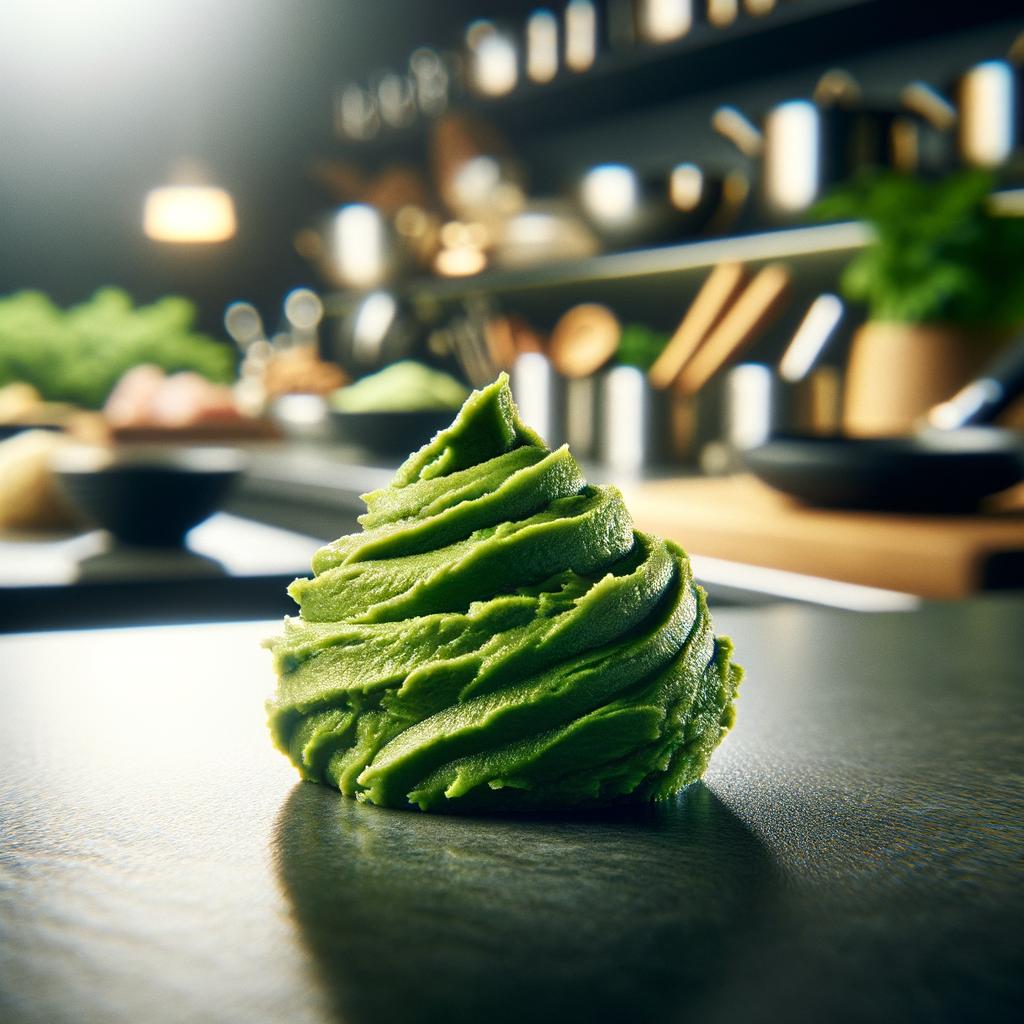Wasabi Paste

Description Wasabi paste, a vibrant green condiment, is a staple in the world of Japanese cuisine. This fiery ingredient is characterized by its smooth, creamy texture and its unique flavor profile that is both spicy and refreshing. Unlike other spicy ingredients that ignite a lingering burn, wasabi's heat is sharp and instantaneous, vanishing as quickly as it arrived. Its unique characteristic lies in its ability to stimulate the nasal passages more than the tongue, setting it apart from similar ingredients like horseradish and mustard.
Primary Uses Wasabi paste is most commonly used as a condiment for sushi and sashimi, adding a punch of flavor that complements the delicate taste of raw fish. It's also a key component in soba noodle dishes, where it's mixed into a soy-based dipping sauce. Beyond its culinary uses, wasabi paste is also used for medicinal purposes in traditional Japanese medicine, where it is believed to have antimicrobial properties and the ability to prevent food poisoning.
History Wasabi, or Japanese horseradish, is an aquatic plant native to the mountain stream regions of Japan. The tradition of using wasabi dates back to the Nara period (710-794 AD), where it was valued for its medicinal properties. Over time, its use evolved from a health remedy to a beloved culinary ingredient. There's a romantic tale associated with wasabi: it's said that in the 16th century, a warlord rewarded his men with wasabi plants for their bravery in battle, thus spreading the cultivation of this plant throughout Japan.
Nutritional Information Wasabi paste is low in calories and rich in dietary fiber. It also contains vitamin C and potassium. The isothiocyanates present in wasabi have been linked to anti-inflammatory and antimicrobial benefits, and may even have anticancer properties. Compared to horseradish, wasabi has a more complex flavor and a higher concentration of these beneficial isothiocyanates. However, much of the wasabi paste available outside of Japan is actually a mixture of horseradish, mustard, and food coloring, so for the full nutritional benefits, it's best to seek out genuine wasabi paste.

